The Essential Guide to Cold Calling
Written by Denise and Amanda
Convinced that B2B cold calling is dead? Think again. If these facts and figures don’t change your mind, read on for common tips, mistakes, and techniques that will cement cold calling as an essential component of a winning sales strategy.
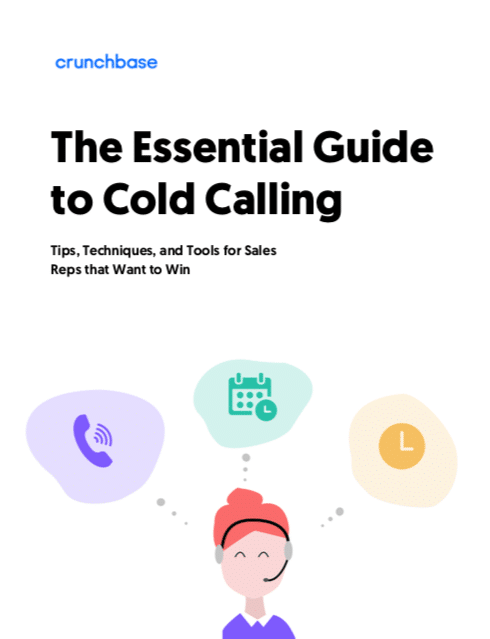

[EBOOK] The Essential Guide to Cold Calling
Use this free guide to learn more little known tips to make your cold calls a little less painful.
9 Tips for Cold Calling Like a Boss
Cold calling is a skill and the need for it is here to stay. Contacting someone you’ve likely never met before and convincing them to invest their resources in your product or service based on a thirty-second elevator pitch is no easy task.
There aren’t many shortcuts that can be taken while cold calling. The calls have to be made and the rate of return is often low, but following these tips and tricks will increase your success rate.
Cold calls may feel fruitless, but trust us: they are worth it. Perfecting your approach to cold call sales is an opportunity to differentiate yourself from your colleagues and maximize your earning potential. Keep reading to find out the best way to cold call.
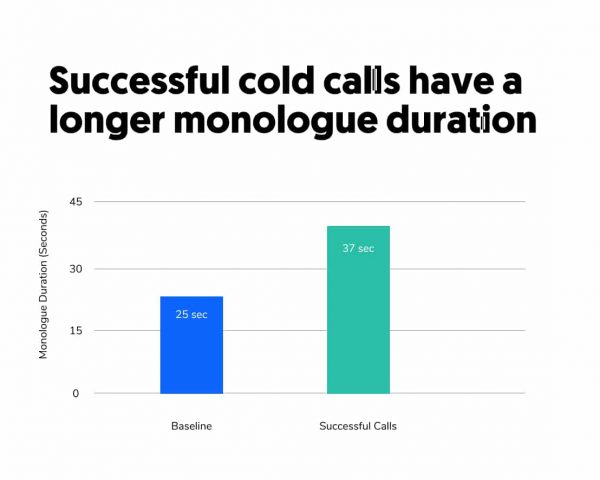

Source: gong.io
Tip 1: Master your 15-second (or 37-second) pitch
Nothing is sold in 15 seconds, but having a pitch ready can make or break your deal. One of the most notable cold calling strategies is to explain your company’s core competencies quickly to keep the person on the other line engaged.
Make sure to cover what your company does and who you’ve done it for. Hone in on the value that you bring to customers and emphasize a specific product or service that is unique to your company.
A possible opening sentence could be:
“I am [name] from [company name], and we’ve done a lot of work for companies in [industry]. We’re in this [industry], and we’ve done a couple of things pertaining to [value to your customer].
Tip 2: Address the set-up
Note where your product fits and stands out in the competitive space. For example, you may sit in an industry with two products (A and C). Product A has some inaccuracies, but it’s inexpensive, while Product C is accurate but too expensive for most businesses to justify.
A script may look like this:
“We have a product that solves [problem/value prop] in your industry and it’s not Product A or Product C.” Then pause.
Once you’ve established the set-up, state that you are proposing option B. Pause one last time to wait for questions and interest on their end.
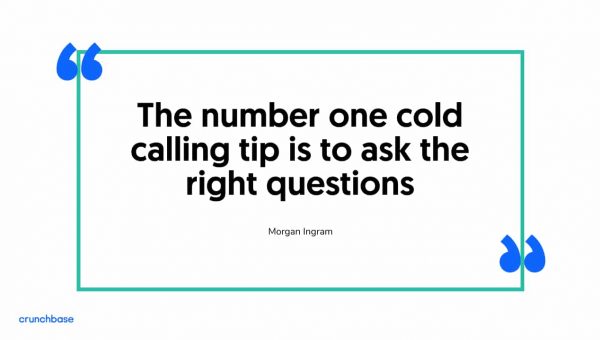

Perfect the Cold Call Script
The more clients you have in limbo, the more chaotic your pipeline will be. Perhaps you can touch base with those types of clients early in the next month to gain a pulse.
However, there will always be a few bottom-heavy opportunities that should be handled with more immediacy. Close those deals, clean up your pipeline, and then spend some time on the new leads.
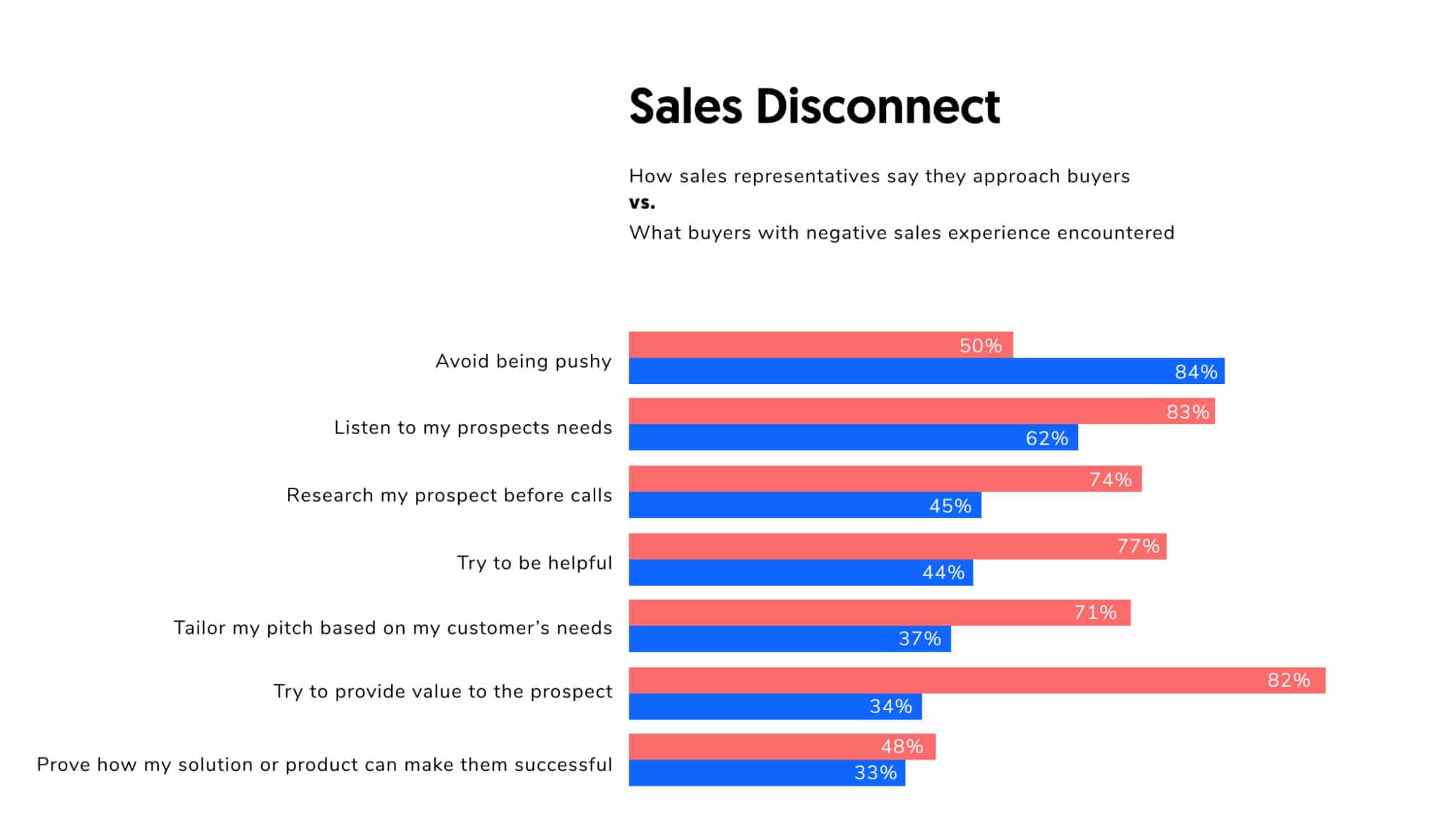


Perfect the Cold Call Script
The more clients you have in limbo, the more chaotic your pipeline will be. Perhaps you can touch base with tdafdshose types of clients early in the next month to gain a pulse.
Tip 3: Ask open-ended questions
Questions are the way to a prospects’ heart. They engage the prospect and keep your deal’s momentum going. Morgan Ingram of JBarrows explains:
“The number one tip is to ask the right questions. Make sure your prospect’s interest doesn’t end along with the call by asking the right questions to keep the conversation and the deal moving forward.”
Tip 4: Smile when you talk
Yes, we’re quite literally recommending that you “smile and dial.” Add notes into your cold calling script to remind yourself to smile. Sure, you may look like a typical sales stock photo on the call, but smiling affects your tone of voice. Smiling when you talk not only builds rapport, but it helps you sound relaxed, knowledgeable, and enthusiastic.
Additionally, research has shown a strong correlation between smiling and positive business outcomes. Prospects are able to discern your smile over the phone, making you seem more friendly and approachable, ultimately improving your closing rates.


Tip 5: Say only one or two sentences at a time
Keep your conversation over the phone short and to the point.
Yesware explains how “studies show that the brain can only hang onto 20-30 seconds of information at any given time. By that measure, your prospect will likely only retain 30 seconds of a fifteen-minute conversation.”
One of the most valuable cold calling tips is to speak clearly and articulately to ensure your prospect remains interested.
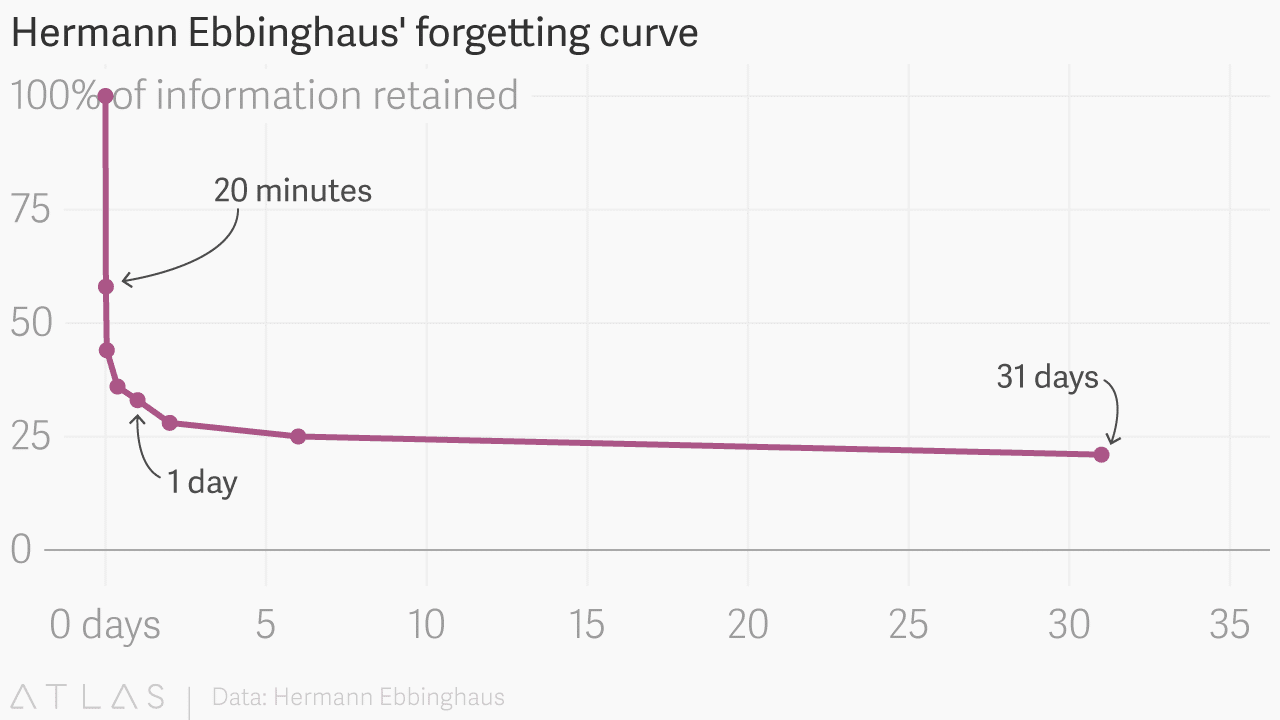

Source: qz.com
Tip 6: Have a “no” goal
This cold calling tip makes rejection your goal and takes the fear out
of hearing “no.” Rather than waiting for the “yes,” make sure you hit a goal of “no’s.”
Per consultant Robert D. Smith, counting “no’s” is a great strategy to gamify rejection, overcome call reluctance, increase your sales pipeline velocity, and generate more sales leads.
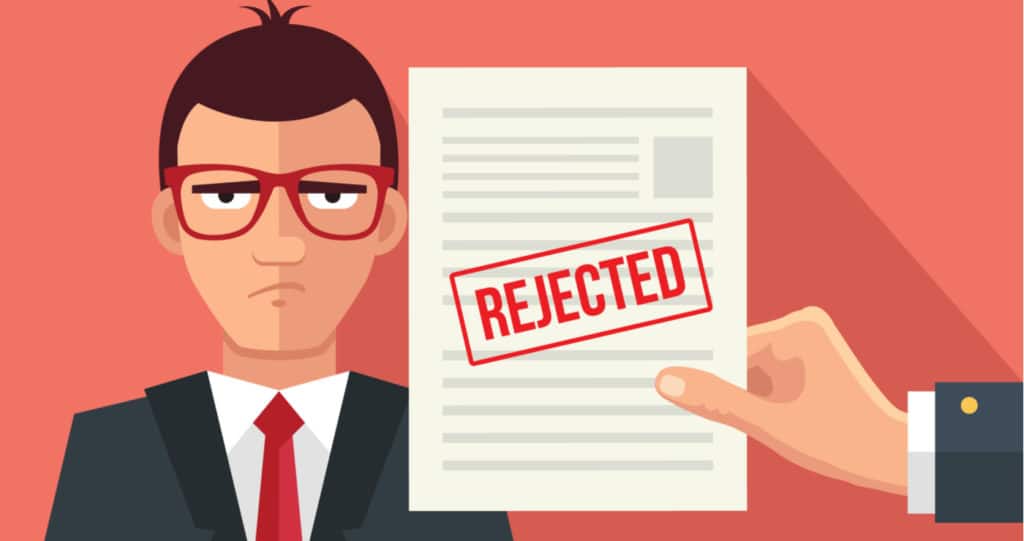

Source: “Overcoming Sales Rejection: How To Turn Failure Into Opportunity Every Single Time” (SalesHacker)
Tip 7: Pique curiosity in voicemails
With 97% of calls now going to voicemail, it’s crucial to master the art of leaving voicemails that invoke curiosity. To do this, state your name last. Morgan Ingram goes through his typical voicemail sales script:
Hello [name]. I’ve talked to a lot of [job title] regarding [your company’s value prop]. If this resonates with you in any way please reply to the email I [just sent or will send after this call]. My name is [name] from [company]. Again my name is [name] from [company]. Thanks!
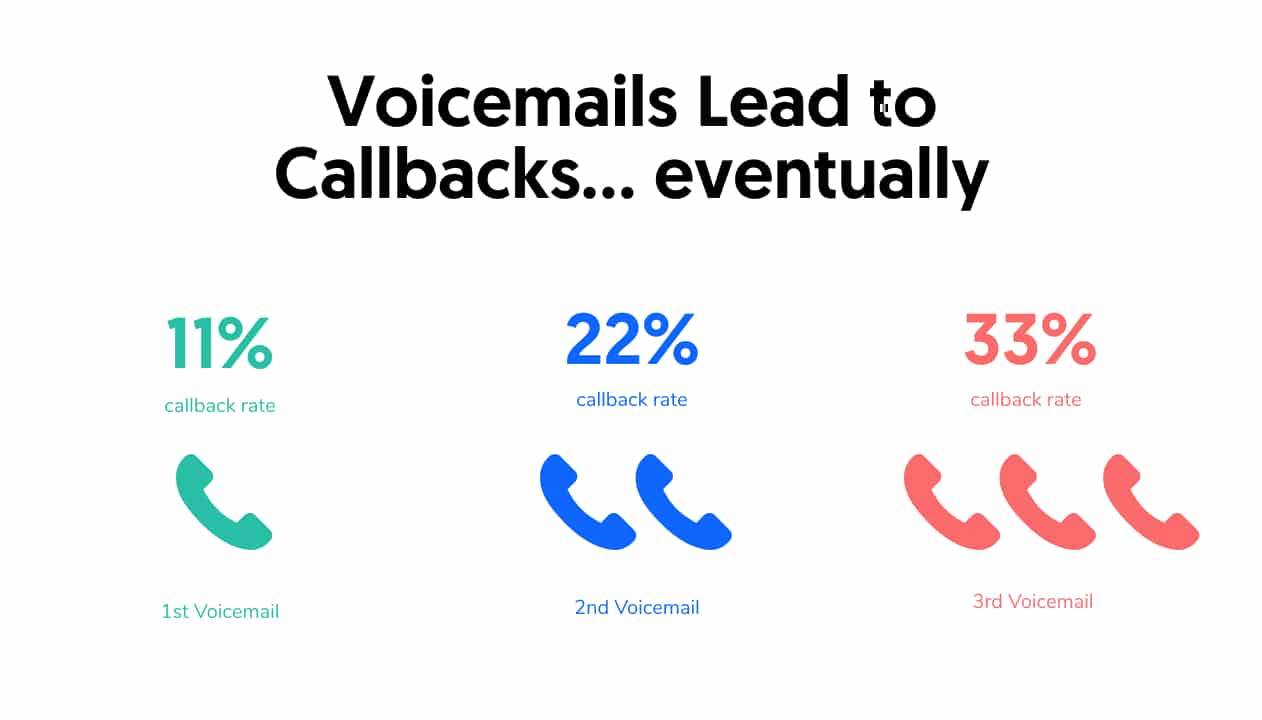

Tip 8: Organize your cold calling time
To maximize your time and energy, strategically organize your calling schedule into two parts: prospecting to find the right person, and call blitzing to get that person on the phone, according to Steve Richard of Harvard Business Review.
Tip 9: Call at strategic times
Maximize your time and qualify prospects during normal business hours (10 to 11:30 am) when administrative assistants are in the office. Then call blitz during “call windows.”
Call windows are typically before 8:30 am and after 5:30 pm once the administrative assistants are gone.
According to Richard, the best times to cold call are:
“…Five minutes before the top of the hour, catching the executives before their next conference call meetings, and holidays like President’s Day, when executives are likely to be in the office and other business may be slow.”
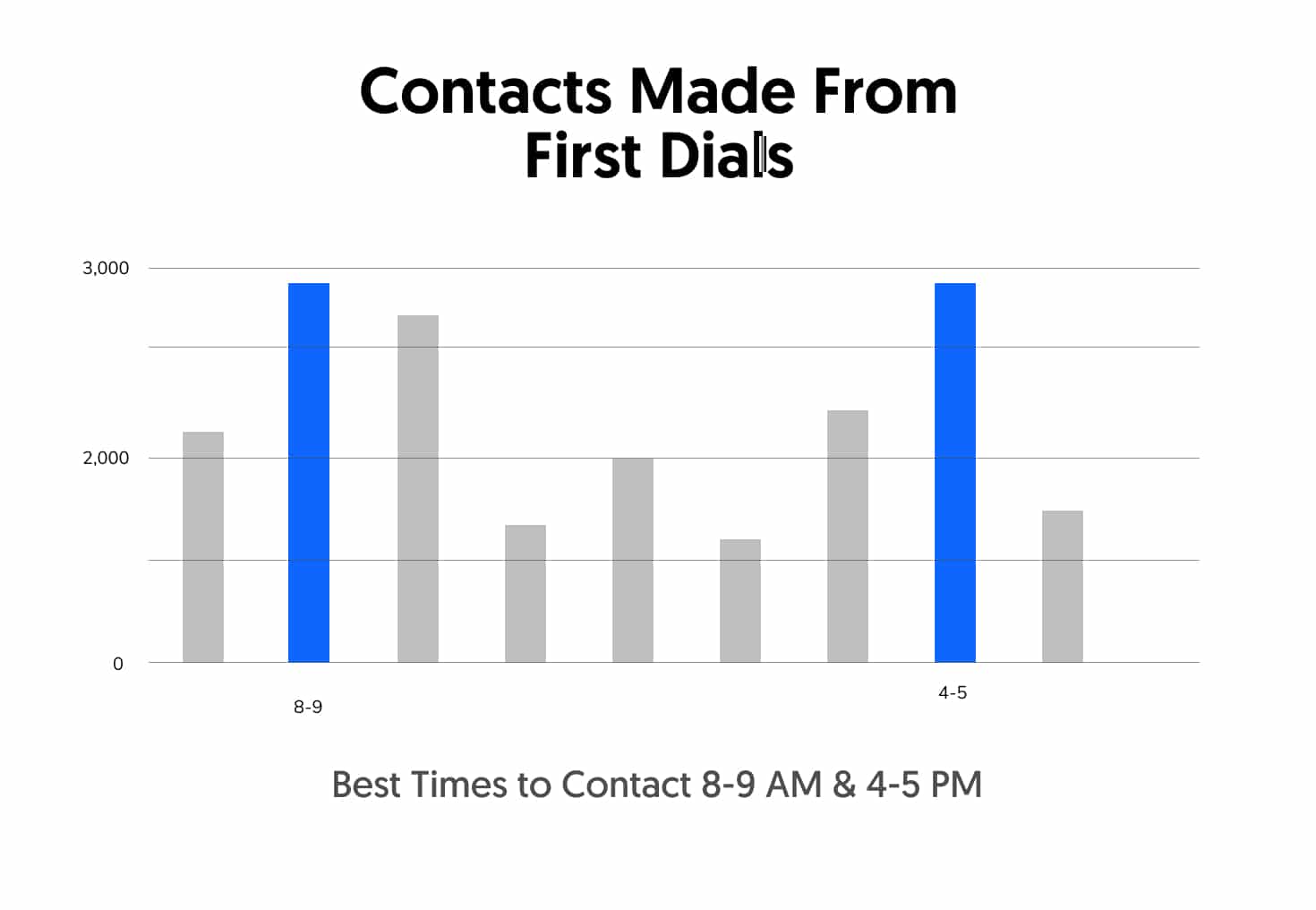

Common Cold Calling Mistakes
Making cold calls is far from easy, even for experienced sales reps. That being said, there are many common mistakes that can make an already challenging task even harder. In addition to leveraging the earlier tips, here’s what you should avoid doing:
Mistake 1: Sounding like a robot
Not tailoring your conversation to the company that you’re talking to makes the caller seem robotic. In some cases, companies even use automated recordings as the first step to cold calling, which is a big no-no.
Similarly, using universal call scripts can make a call feel rehearsed and unnatural. This will decrease the likelihood of a potential client wanting to work with you. It shows that from the first interaction, the seller does not have the attention to detail necessary to make the prospect feel valued.
Mistake 2: Talking too much and not listening enough
If you can get the prospect to engage with you, don’t spend your limited time rattling off facts and statistics without letting them speak. Nobody likes to be talked at.
Diving headfirst into a pitch without coming up for air can make the relationship seem one-sided and unappealing. Take the time to listen to what they have to say. Chances are they will give you nuggets of valuable information that you can use to further the conversation, build trust, and ultimately get an appointment set.
Mistake 3: Getting stuck behind the gatekeeper
One of the reasons that companies have receptionists and assistants is to weed out unwanted calls to the decision-makers. The trickiest skill in cold calling is getting a gatekeeper to connect you with someone that will say YES.
A rejection from the gatekeeper can be hard to overcome since you never even got a chance to speak to the person with buying power. This is the stage where many cold calls turn, well, cold.


Mistake 4: Opening with “how are you doing today?”
This is a classic and overused filler. When you start your calls with this, not only do you sound disingenuous right off the bat, but you’re also setting yourself up for potential failure if they respond with anything other than “fine.”
Instead, politely jump to the point and say, “Thanks for taking my call.”
Mistake 5: Asking “Is now a good time?”
Honestly, no it’s probably not a good time. It’s never a good time, especially when you get a call from an unknown number. If it is, in fact, a bad time for your caller, let them tell you, don’t give them an out right away.
Mistake 6: Over-apologizing
To those of you particularly fond of apologizing, this message is for you. Do not apologize! Do not say “I’m sorry for bothering you” or anything like that. Address your cold calling guilt another way.
Replace an apology with, “Can you help me?” This cold calling tip works particularly great with administrative assistants and gatekeepers.
Mistake 7: Uttering the phrases “touching base” or “checking in”
Replace these fluffy reasons for calling with the actual reason for cold calling. This respects your prospect’s time and addresses the biggest don’t: not having a reason for your call.
How to Prepare and Perfect Your Cold Calling Script
With an understanding of what to do and not to do on cold calls, consider the following cold calling techniques and tools regarding sales scripts, social selling, and technology to achieve better performance from your sales team.
Perfect the Cold Call Script
The more clients you have in limbo, the more chaotic your pipeline will be. Perhaps you can touch base with those types of clients early in the next month to gain a pulse.
However, there will always be a few bottom-heavy opportunities that should be handled with more immediacy. Close those deals, clean up your pipeline, and then spend some time on the new leads.



Prepare a Script for Bypassing Gatekeepers
It’s not uncommon that the phone numbers listed for a particular person will actually be answered by a gatekeeper. The first goal of a salesperson in this situation is to get patched through to a decision-maker.
With that in mind, it is important to ensure that you do not overwhelm the gatekeeper with facts and information about your product or service that they have no authority to act on. The gatekeeper could have access to, or even control, the decision maker’s calendar, so establishing a friendly rapport with this person will be vital in securing an appointment.
Also, while getting past the gatekeeper is the goal, by taking the time to converse with this person, rather than reading a script at them verbatim, you will likely obtain helpful information about the decision-maker that you’re trying to connect with, which can be used to help close a deal.
For the best results, stop viewing gatekeepers as an obstacle to get past, but instead, start seeing them as the valuable resources that they can often be to your success.
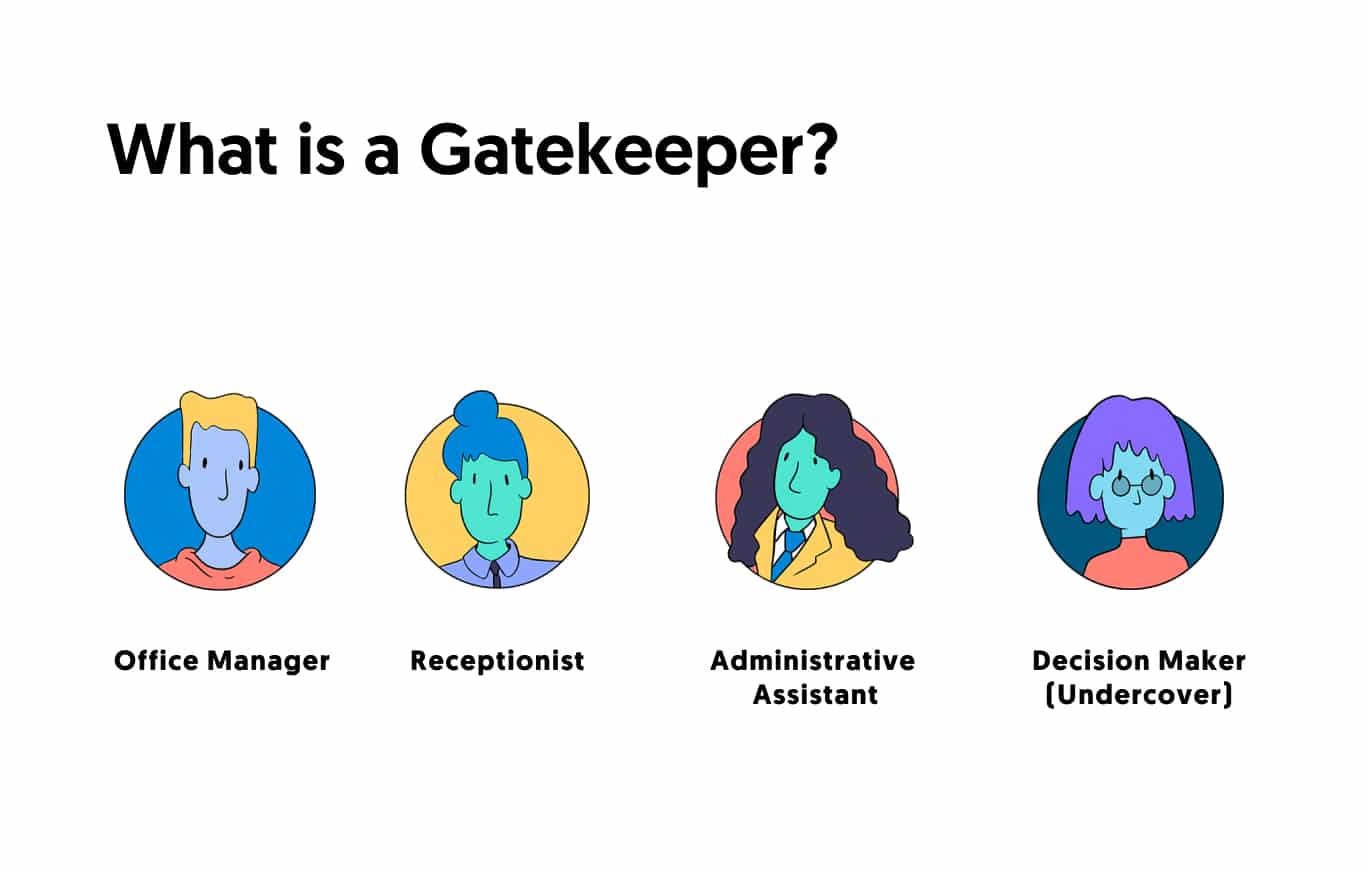

A Few Things to Consider When Talking to Gatekeepers
Get the gatekeeper’s name
Should you need to follow up, you could come in contact with this person again. Addressing them by name is a simple, easy way to build trust and make them feel valuable. Some decision-makers decide whether or not to take a sales call based on the gatekeeper’s feedback.
Ask targeted questions to help in future calls
Ask targeted questions that can assist in future calls. Research will play a pivotal role in what these questions should actually be, but asking about recent news in the company could get the gatekeepers talking.
Ask questions about your target contact
Chances are that the gatekeeper works most closely with the decision-maker and can give you a leg-up by sharing details regarding their preferred method of contact or times of availability.
Remember your manners
Follow up with a gatekeeper after an initial call to thank them for their time and any information they shared. The gatekeeper is likely the person that can get you an appointment or stop your sale dead in its tracks. Professional courtesy can go a long way.
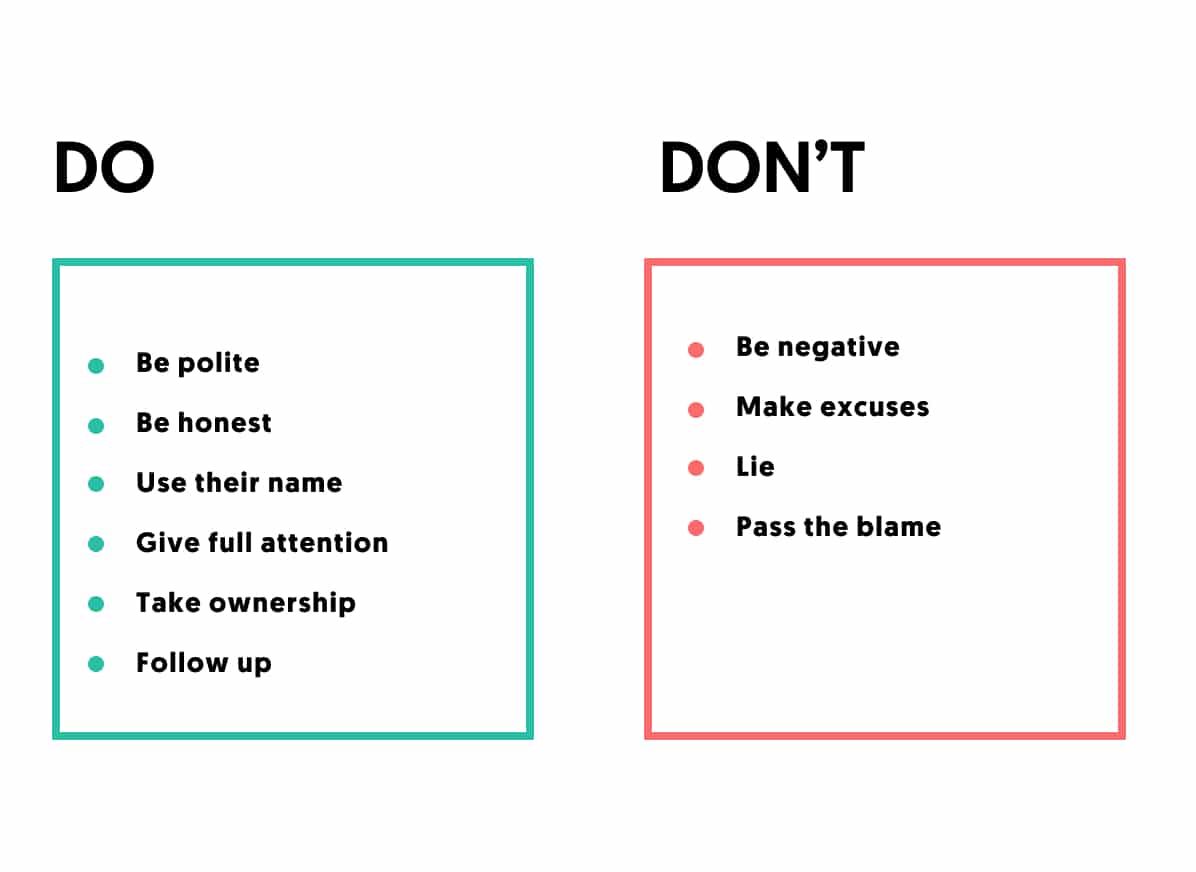

Prepare a Script for Decision-makers
Once you make it to the decision-maker, the script should evolve to focus more on your value proposition. Dive into details about how the product or service you are pitching can solve for their specific pain points.
Effectively utilize the information that has been provided to you by the gatekeeper as it is likely that they relayed the substance of their conversation with you to the decision-maker.
Tailoring your script can demonstrate attention to detail and allow you to maximize your time with a decision-maker. Instead of rehashing information shared by a gatekeeper, you can jump right into your sales pitch and start closing the deal.
A Few Things to Consider When Talking to Decision-makers
Have a basic understanding of the company and your product value
Use your cold calling script as a cheat sheet with company goals and pain points. This will ensure your pitch always ties back to their main priorities and concerns.
Determine areas for improvement
Ask questions to find out areas where the decision-maker sees some potential for improvement. Gaps in processes or technology can be entry points. Finding specific examples of the prospect’s shortcomings can help increase the likelihood of being able to accurately portray how your product or service can fill those voids.
Save resources for a formal sales appointment
If possible, try to use only as much information as needed to secure a meeting. Introduce how you can build a demo or presentation to solve a particular issue. This allows you to pique their interest and give yourself an opportunity to continue the conversation.
Quickly identify unqualified leads
The time spent talking with an unqualified lead could be better used navigating the phone lines to a qualified one. The faster you can identify that someone doesn’t need your product, the better. Don’t be afraid to move on if the decision-maker you are speaking with is not a good sales prospect.
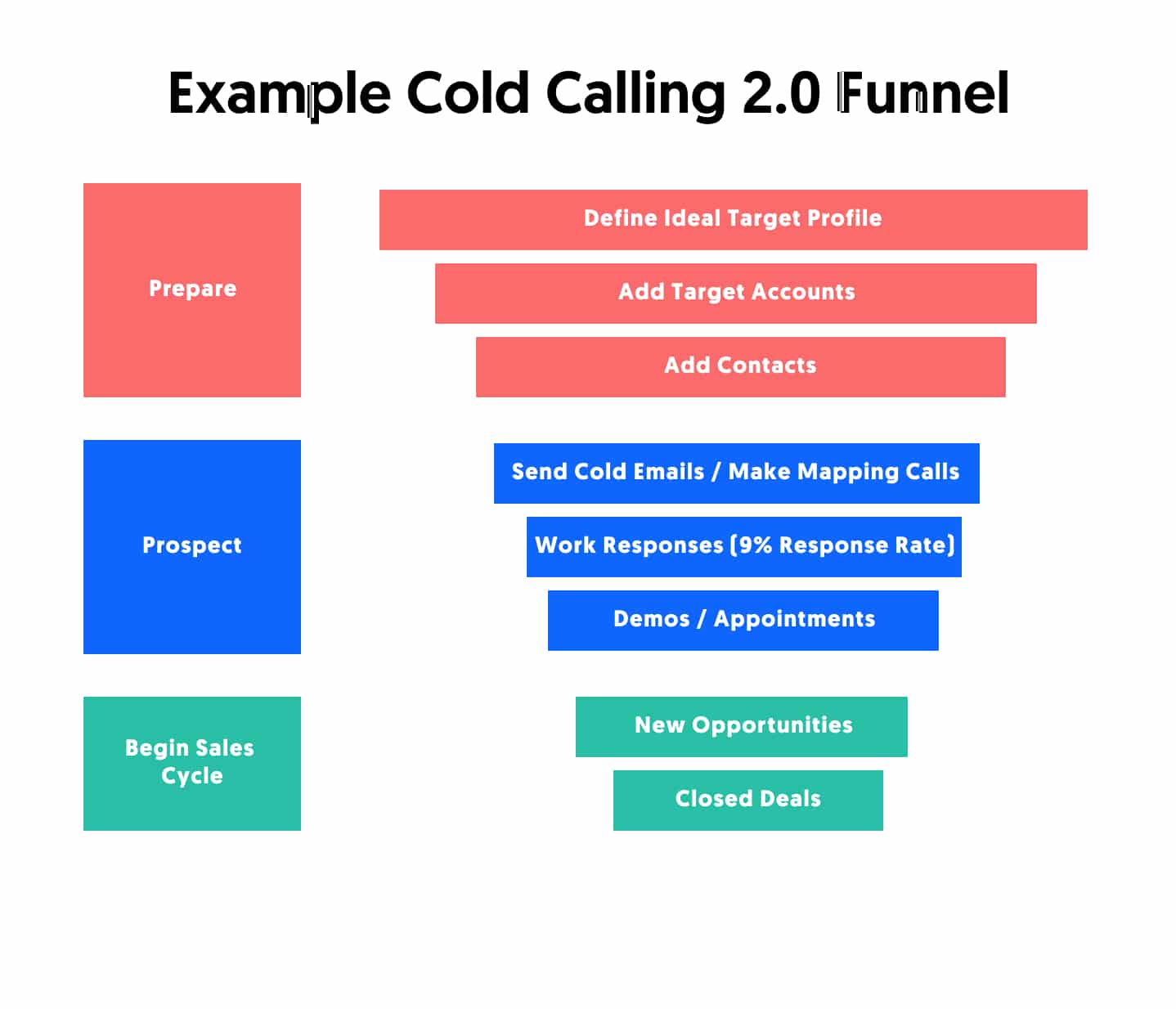

Combine Social Selling With Cold Calling
While cold calling remains an effective sales strategy, it’s not the only way for salespeople to reach prospects and leads. You can also connect with customers via social media. Social selling is a cold selling method that allows salespeople to engage with prospects on their own time.
By contacting a decision-maker via a social media platform — either via direct message or by replying to a public social media post — salespeople have an opportunity to share information that the prospect can process without the pressure of real-time interaction. Once the salesperson does pick up the phone, social selling primes leads so that cold calling becomes a warm calling.
For rookie members of your sales team, social selling is also a great way to help them overcome call reluctance, the fear of picking up the phone. Sharing a customer story or social proof via LinkedIn, for instance, may feel easier than a phone conversation and will make the inevitable cold.
Increase Cold Calling Efficiency With Technology
In today’s world of technology, cold calling does not have to be the slow and inefficient process it once was. From automated dialing systems to document management platforms, technology can significantly boost your cold calling efficiency and results. If you haven’t already, consider upgrading your technology in the following areas.
Adopt a CRM
Say goodbye to spreadsheets and adopt a CRM (customer relationship management) system like Salesforce, Oracle, SAP, and Eloqua, which have infrastructures designed to manage the process between prospects and customers and increase the efficiency of prospecting.
Automated Dialer System
Consider using an automated dialer system like RingCentral, Five9, and PowerDialer to better maintain lists and oversee call center agents. These systems drastically boost call efficiency by dialing the next number on the list as soon as the previous call is completed. More calls mean more opportunities to make sales.
Centralized Storage Location
A centralized storage location of presentation templates, pamphlets, or one-sheets on systems like Google Drive, Dropbox, and OneDrive can be helpful for quickly sending prospects information while still on the phone. This allows agents to confirm that the documents were received and opens the door for a follow-up call to review the information later.
Track Trigger Events With Crunchbase Pro
Triggers events are anything that signals an intent to buy, such as new funding rounds, mergers and acquisitions, hiring C-level staff, laying off team members, and restructuring personnel. Taking on more of a broad point of view, any industry changes, competitor adjustments, awards or special events are trigger events. Trigger events help qualify prospects and demonstrate that a salesperson has done their research.
Regularly monitoring a company’s activities can be time-consuming and waste valuable resources while also costing a lot of money. Let Crunchbase Pro send you all of the important information you seek. Whenever a company you want to monitor raises money or is mentioned in the news, Crunchbase will let you know about it. Refine your search with customizable filters based on your target prospect.
Generating a potential lead or re-engaging a cold lead is just the first step toward making a sale. Crunchbase can help narrow down your search to find the best leads for your business. The key to turning a lead into a sale is knowing when to sell your product or service. By identifying and tracking trigger events, you’ll be able to react to potential sales opportunities more quickly. Close more deals and increase your likelihood of beating competitors to a new prospect.
Related Articles
Posted by Jeremy Brown
As a sales leader, you’re responsible for putting your team in a position to succeed. Part of that responsibility is ensuring your sales process is…
Posted by Joe Caprio, VP of Sales, Chorus.ai
Essentially everything is virtual these days – even sales calls – 92% of all customer interactions happen over…
Posted by Michael Frye, Founder & CEO, BigPicture
How do you build a B2B lead gen strategy? As the founder of a B2B sales intelligence product, I work with sales…
